Prioritizing Cleanliness at Your Hotel After COVID-19
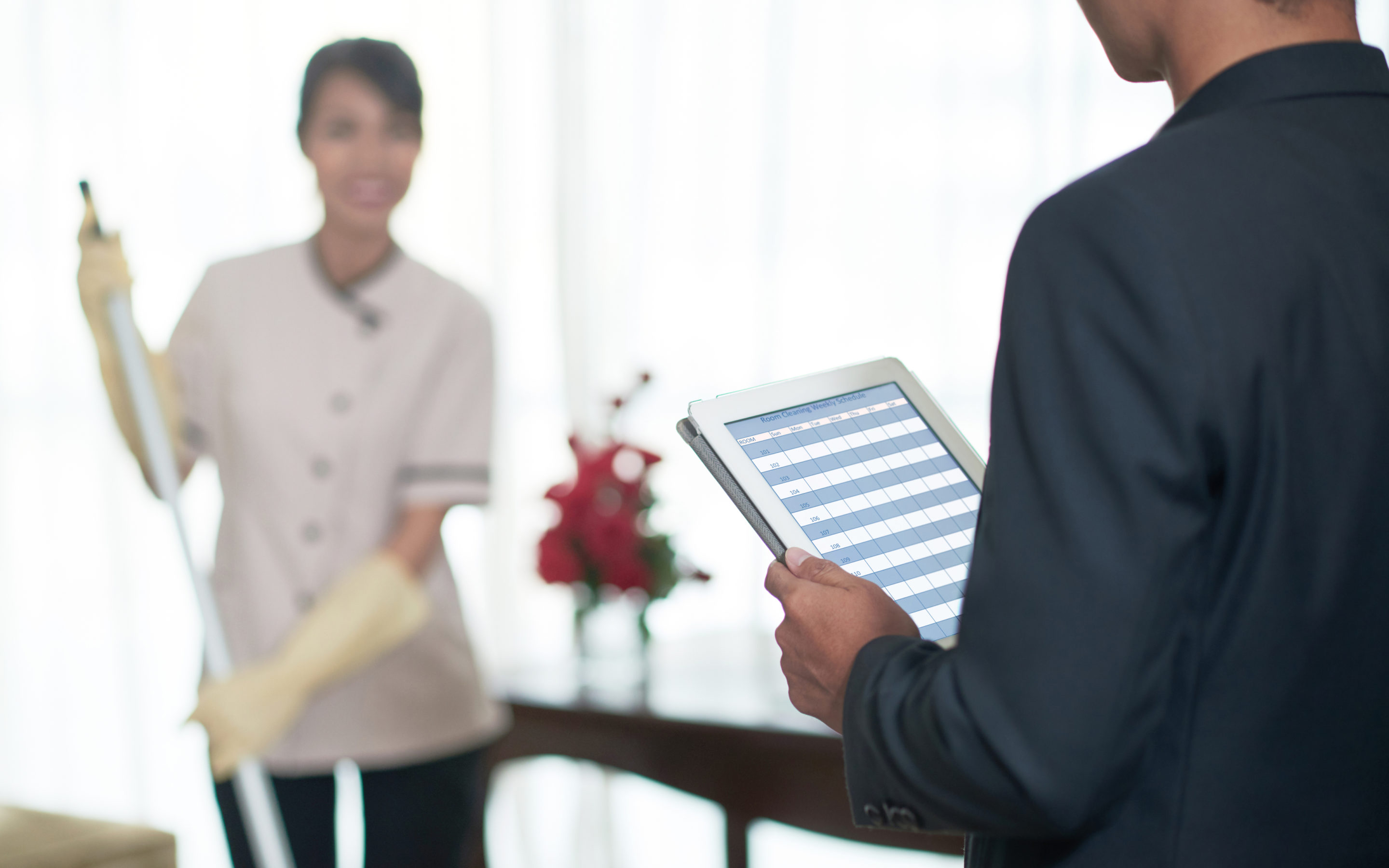
8 Ways to Implement Improved Cleaning Practices at Your Property
The hospitality industry has been shaken up by the spread of the coronavirus, but as numbers finally begin to show signs of calming around the world, it’s imperative for hotels to consider how this pandemic will change the traveler’s mindset forever. Just as with similar crises, change needs to be made to provide reassurance to your travelers – both now and future – that you’ve taken permanent action in response to the virus. As negative review data from TMG OneView™ demonstrates, the primary concerns a guest has with a hotel visit is cleanliness. Following a global health crisis, it’s going to be at the forefront of everyone’s mind. Hotel management needs to take action to implement operational solutions for ongoing sanitization. However, implementing brand new cleanliness procedures can be a demanding undertaking, so we’ve compiled a list of ways to streamline the process to put your staff and guests at ease.
1. Publish cleaning logs for public areas.
You may have seen lists like this posted in public restrooms when you’re out and about, but this is one simple, effective way to assure your guests you’ve been keeping close tabs on cleanliness. What you’ll have to do is make a spreadsheet with three columns: a place for a manager or housekeeping staff member to sign, a date, and a time of day. The goal is to show that someone is checking or cleaning that area a certain number of times each day; you can aim to have this be every two hours, every hour, or as frequently as every thirty minutes. Depending on the area where the cleaning log is posted, you can change the frequency required for checking. For example, you might want to have more frequent checks at the front desk, the breakfast area, and the bathrooms compared to lesser used community spaces.
2. Post in-room checklists.
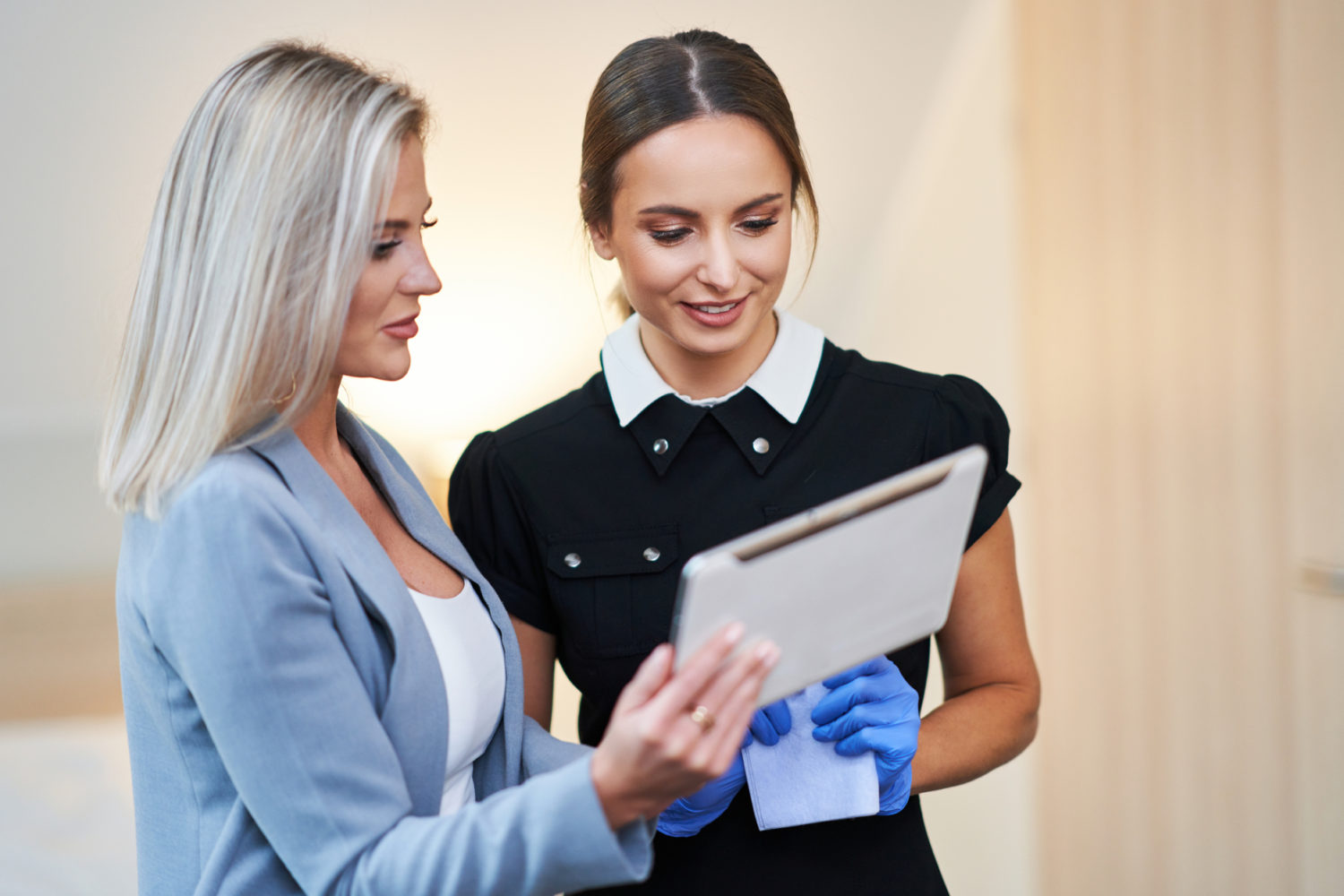
Every housekeeper on your staff should have easy access to a checklist they can reference when cleaning each room. Additionally, these checklists should be posted in each room somewhere visible for guests to know exactly what you’re doing between visits. Transparency is pivotal in assuring your guests that your rooms are clean and their experience is safe. Nothing is too much information: include less frequent procedures like carpet cleanings, as well. Your guests will be grateful to know exactly what steps you take in cleaning your property rather than having to guess at what your procedures are.
3. Get your employees certified in sanitization.
The best way to improve your housekeeping procedures is to make sure your employees are well prepared. Whether you’re taking on a new hire or retraining other staff, allowing them to acquire certifications in sanitization is beneficial to both their work and your hotel. It’s recommended to hang the framed certifications in a public area such as the lobby. You’ll be able to advertise their achievements which honors the employee’s efforts (and boosting their morale) while also easing traveler’s minds. Check your state’s department of health for training resources or invest in an industry-specific training such as the Certified Hospitality Housekeeping Executive certification from the American Hotel & Lodging Educational Institute.
4. Use EPA-approved products.
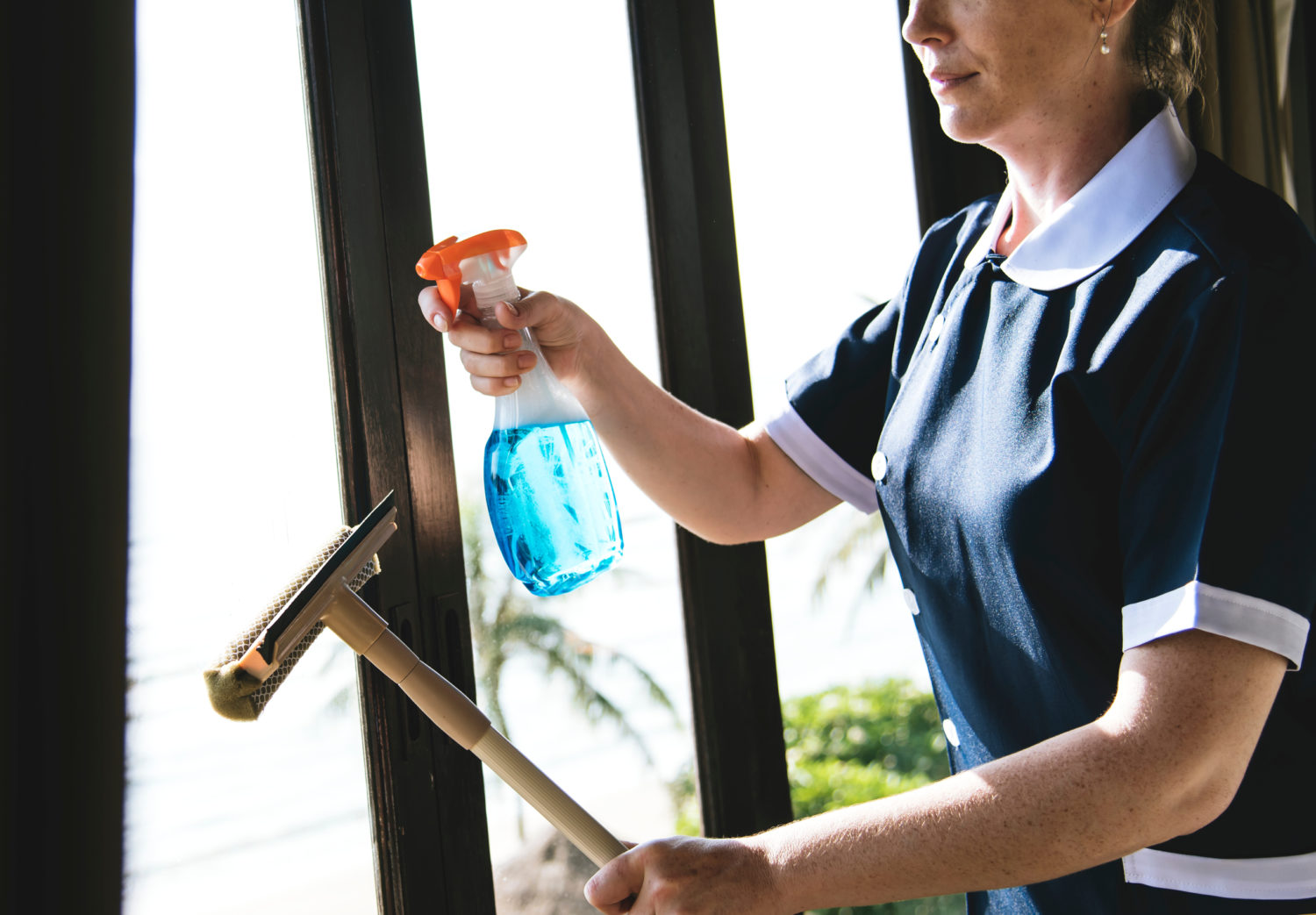
While you may have a wide array of cleaning products at your hotel already, now is the time to review what you’re using and replace it if necessary. The EPA is regularly updating this list of effective disinfectants against SARS-CoV-2, the virus that causes COVID-19. This table includes important information such as contact time (the amount of time the surface being cleaned should remain wet), the type of formula the disinfectant is, and the appropriate surfaces to use the product on. Some cases may direct you to the product description for further details, but utilizing this chart when ordering cleaning products is a great place to start.
5. Provide masks for all staff members.
The CDC has encouraged all essential workers and individuals leaving their homes to wear a cloth mask to cover their nose and mouth, helping to further prevent the spread of infection. You don’t have to worry about buying a medical-grade filtered mask; simply the presence of a cloth one covering the nose and mouth of your service workers will help put your guests at ease. If you’re concerned about the staff looking professional, you could make masks to match your hotel’s brand color, or consider masks with clear inserts which are helpful for serving hard-of-hearing guests.
6. Re-train your staff and clean while occupancy is low.
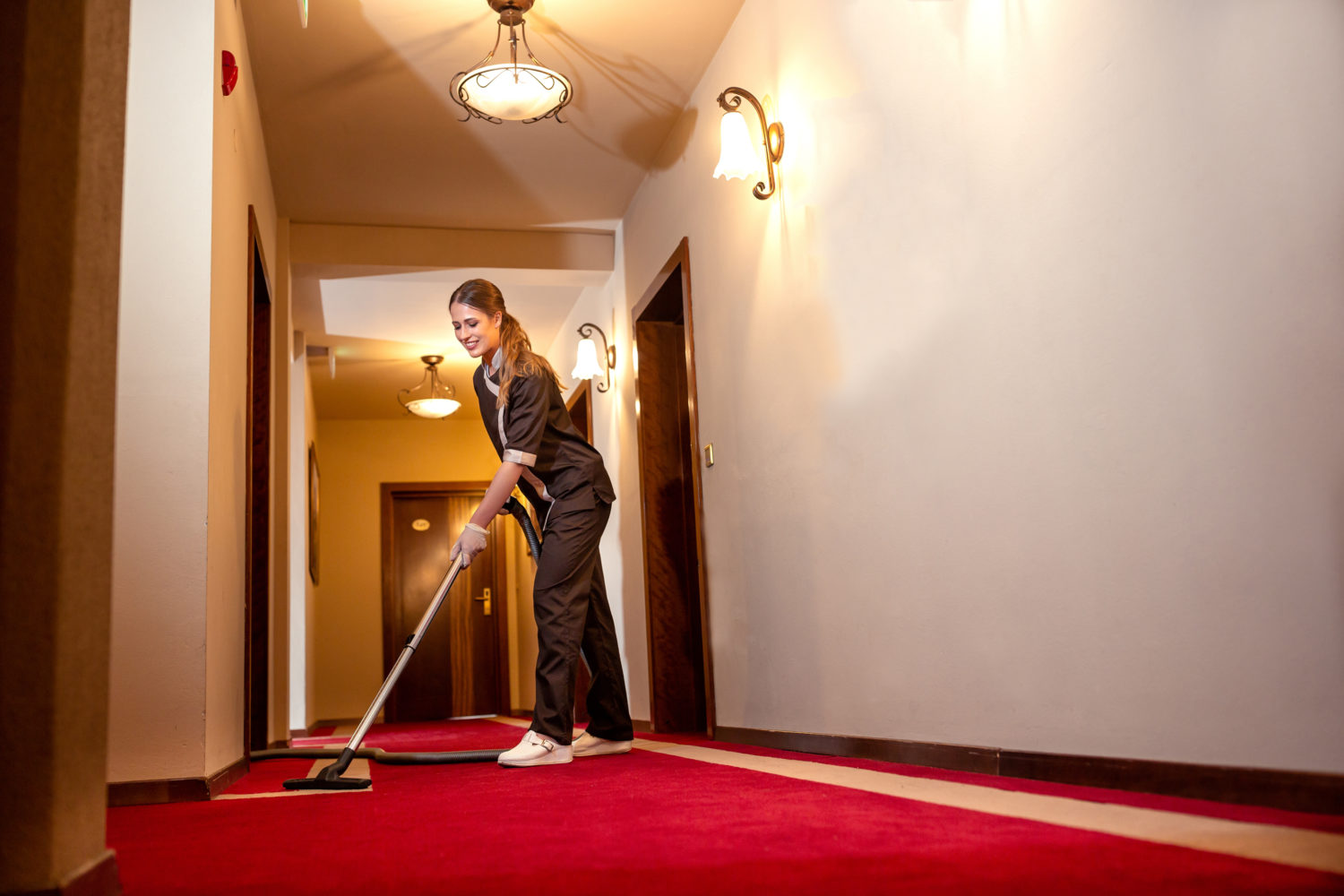
Along with the recommendation to wear masks, the CDC has a comprehensive step-by-step article detailing the process you should take when cleaning the various high-touch surfaces, including how to handle laundry and recommendations for cleaning carpets, curtains, and electronics. Revising your process and re-training while occupancy is low is ideal, as fewer guests means surfaces are being touched less often. You’ll also be able to perform widespread deep-cleaning maintenance during a period where fewer guests will be disturbed. This is critical free time you must utilize to ensure both your property and your staff are prepared when occupancy starts to tick back up again.
In addition, educating your staff to look out for symptoms of COVID-19 will keep them prepared in the event that any should arise. Developing an action plan in the presence of symptoms of COVID-19 can help reduce panic for both your staff and guests. The sooner your staff is able to catch signs of illness, the sooner your team will be able to act and remove themselves from the workplace to reduce the risk of spreading infection.
7. Have signs visible throughout the property.
Visual reassurance is a powerful tool for your incoming guests, and having clear signage posted throughout your property is a simple investment to make that keeps your guests informed about your policy updates. When guests have signage to reference, they won’t be left to wonder what steps you’re taking or what steps you’ve already taken during this time. Your staff will be able to better address or direct questions related to your policies to the posted signage, or provide more in-depth answers to guests still curious. Don’t hesitate to place signs in every public area of your hotel. Whether it’s the pool, the fitness center, or your breakfast room, your guests deserve to know exactly how you’re working to keep them safe. Your signs can also encourage guests to practice social distancing (maintaining 6 ft. distance between people), wear masks, and wash their hands frequently during their stay.
8. Share photos on your social media.
Social media is an ideal channel for keeping your guests informed about your cleanliness practices. Taking photos of the disinfectants you’re using to post on social media is part of being transparent about your updated policies. Regular updates about cleanliness and procedures at your hotel are beneficial to your guests and you, as it drives more users to visit your webpage, which ultimately results in more bookings for the future. You can even take the time to highlight staff members who have completed special training to become certified in sanitization, showing future travelers you’re working hard to prepare your staff, as well.
Although hotel occupancy is low, now is not the time to remain idle. Seize this opportunity to thoroughly review your current procedures surrounding cleanliness and evaluate where changes are necessary. Once this challenging period comes to pass, hotels will not be able to return to business as usual, and making the effort now will save you time and earn you more business later. For additional resources about how to improve your digital marketing during the pandemic, visit our dedicated COVID-19 resources page.

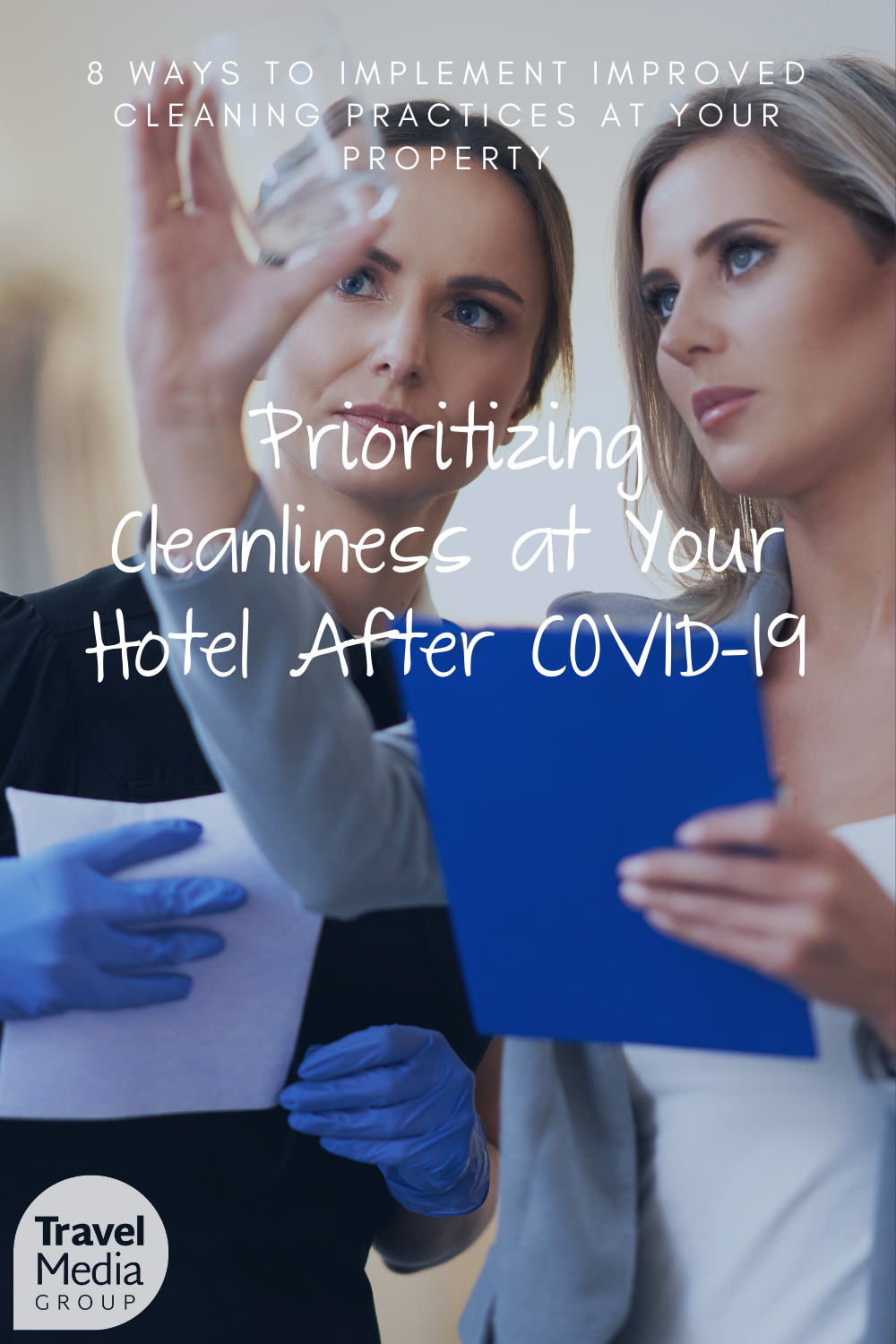




0 Comments